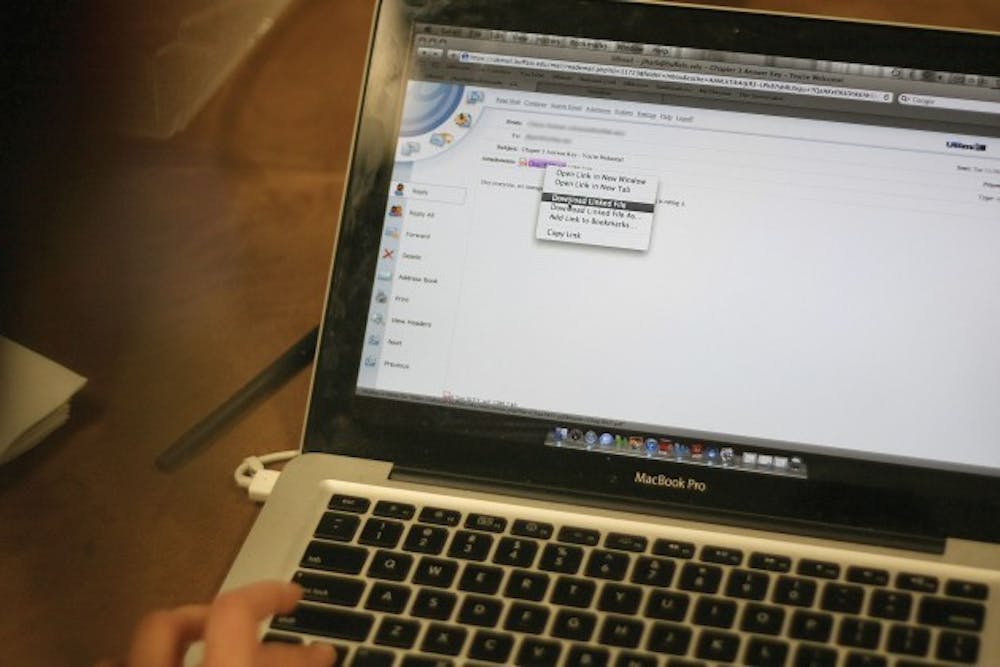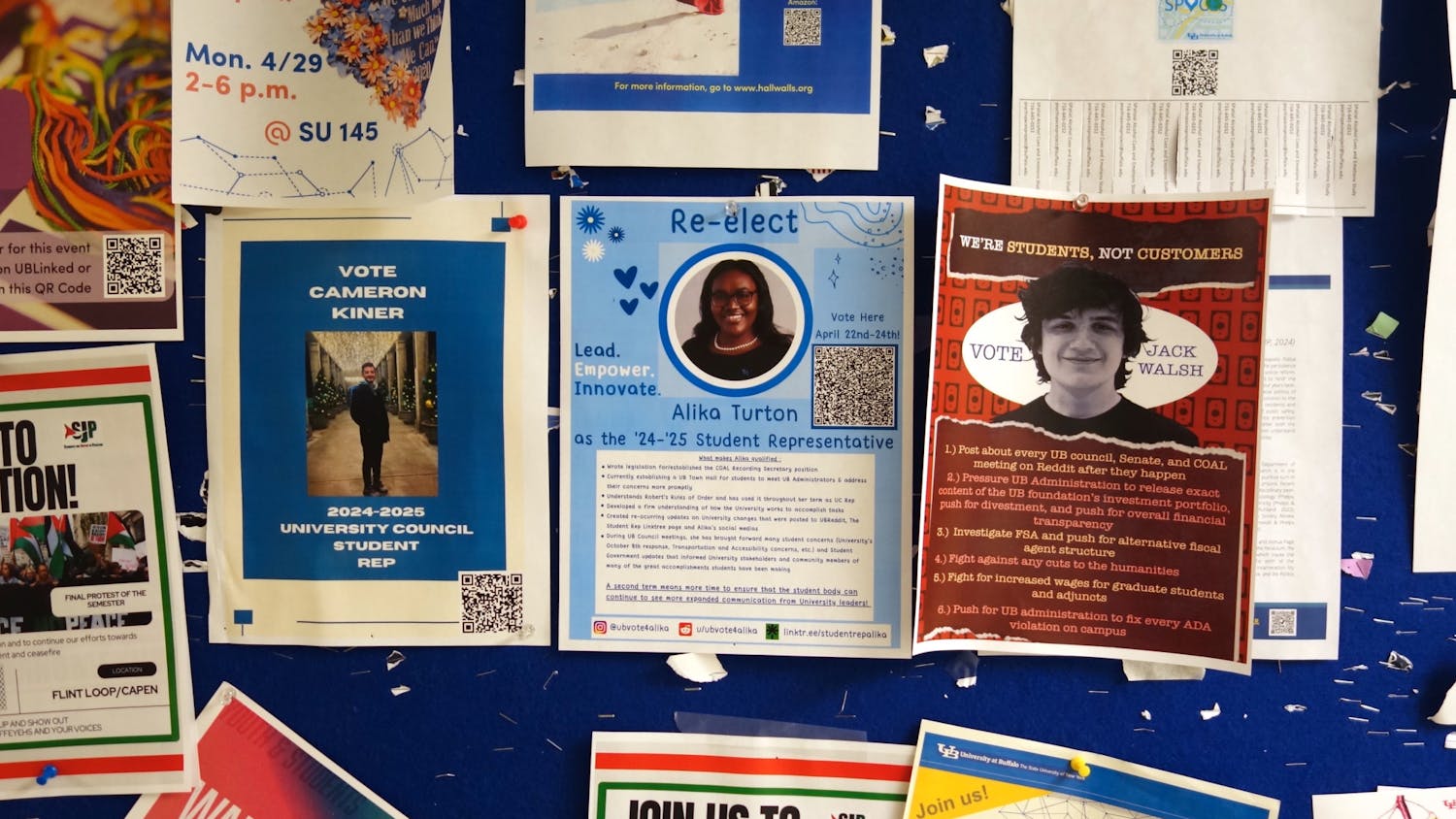Seventy percent of college students admit to some form of cheating.
In a study conducted in 2006 by the Center for Academic Integrity, a survey of 50,000 college students on 60 different campuses showed that 70 percent of students admitted to cheating in some capacity, 50 percent admit to cheating on written assignments, and 25 percent admit to serious test cheating.
With these staggeringly high national numbers, educators at UB are attempting to do whatever is necessary to prevent cheating on campus.
A workshop held Thursday in the Teaching and Learning Center entitled "Plagiarism and Academic Integrity" featured James Gardner, vice dean for academic affairs in the School of Law, James Jensen, professor of engineering and faculty director of undergraduate studies, and Mike Ryan, professor of chemical and biological engineering and director of university accreditation.
One topic that was discussed during the seminar was the professor's responsibility to create a learning environment that does not enable academic dishonesty.
When allegations of cheating surrounded an exam in Professor David Murray's Introduction to Management Info Systems class, MGS 351, students came forward demanding that Murray, who allegedly gives the same exact exams each year, accept some responsibility.
According to Jensen, it is a teacher's responsibility to actively work to minimize a student's opportunities and incentives to commit academic dishonesty.
In order to create a fair and honest learning environment, teachers should be discouraged from using old exams, according to Jensen.
"[Just as] students get into a panic the day before [they need to take] an exam, teachers get into a panic the day before the exam needs to be written," Jensen said.
"Faculty should assume that [all students] have copies of past exams… and should be encouraged not to [re-use exams] because it encourages this attitude that you don't have to study or review material because the answers are out there in past years' exams."
Ryan understands that while students, like those in Murray's management classes, might find old exams to be a useful studying resource, the teacher has a responsibility to prevent the tests from being exactly the same each year.
"When I was a student in preparing for an exam I would want to know the nature of the questions asked on previous exams just to know what had been asked before," Ryan said. "However, if an instructor uses the same exam year after year, it will become well known to students. In some cases, it would be difficult to change the general nature or content of an exam but you can modify the questions appropriately. It is a good practice to try to minimize the opportunity for [cheating]."
The teacher's responsibility to ensure academic honesty does not just extend to varying the pattern or order of exam questions.
According to students in Professor Randall Hudson's Human Physiology class, PGY 300, a professor's error caused class-wide cheating on a recent exam.
Matthew Helm, a junior biomedical sciences major, states that in a renal system exam earlier this month, Hudson accidentally passed out a copy of the answer sheet to students.
"There were four versions of the test, and [on the fourth] version, answer keys were stapled to the back of the test," Helm said. "About five minutes into the exam, [Hudson] announced to the class that if [they had] version four, there are answer keys [attached and asked them] to rip them off and hand them back in."
Hudson's announcement caused a commotion as students started to discuss the test and exchange answers, according to Helm.
"There was a 10-minute period and people trying to figure out what to do. Apparently he didn't get all the answer keys back [because] some people kept them," Helm said. "There wasn't even just cheating with the answer keys. There were definitely people talking to their neighbors [and exchanging answers]."
Hudson ended up having to invalidate the results of the exam and gave all the students a perfect score because some students had obviously gained an unfair advantage over other test takers.
"[Hudson] gave everyone a [perfect score] but I know that some people who didn't deserve a 100 lucked out even though they probably cheated," Helm said. "It is annoying that people [who] put in zero effort got [a perfect score]."
While accidentally handing out an answer key may be a rare occurrence, Jensen offered preventative measures that teachers should take to reduce academic dishonesty.
"A grading [system] that emphasizes the process of getting to an answer rather than just the answer minimizes incentives for cheating," Jensen said. "If you have the students just put an answer in a box, it maximizes a student's incentive to cheat."
Jensen also encouraged teachers to use methods such as sharing teaching assistants with other professors during an exam, seating people in every other seat on test days, having different versions of tests, scrambling questions on exams, and changing the way they are graded.
"If you want your students to know [proper academic integrity standards] it's your job to teach it to them regardless of whether or not they should have known that before walking through the door," Jensen said. "In terms of things like citation or explaining what proper sources are, it is our job [as educators] in the classroom to teach [students] how to do it."
E-mail: news@ubspectrum.com





